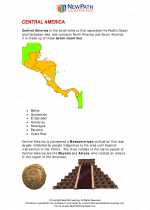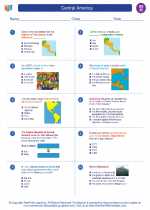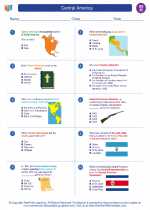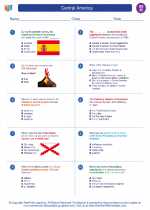Venezuela
Venezuela is a country located on the northern coast of South America. It is known for its stunning natural landscapes, including the Andes Mountains, the Orinoco River, and the Angel Falls, the world's highest waterfall. Venezuela has a rich cultural heritage, with influences from indigenous peoples, Spanish colonization, and African heritage.
Geography
Venezuela is bordered by the Caribbean Sea and the Atlantic Ocean to the north, Guyana to the east, Brazil to the south, and Colombia to the west. The country has a diverse geography, including coastal plains, the Andes Mountains in the northwest, and the vast Amazon rainforest in the south.
History
Venezuela was originally inhabited by indigenous peoples, including the Caribs and the Arawaks. In 1498, Christopher Columbus became the first European to visit Venezuela. The country was later colonized by the Spanish and became part of the Spanish Empire. Venezuela gained independence from Spain in 1821, led by revolutionary hero Simón Bolívar.
Economy
Venezuela has rich oil reserves and has historically been a major oil exporter. However, political and economic instability has led to challenges in the country's economy in recent years. The economy is also supported by industries such as agriculture, mining, and manufacturing.
Government and Politics
Venezuela is a federal presidential republic. The current political situation in Venezuela is complex, with ongoing debates and conflicts surrounding issues such as government corruption, human rights abuses, and the distribution of wealth and resources.
Culture
Venezuela has a diverse and vibrant culture, with influences from indigenous, African, and European traditions. The country is known for its music, dance, and festivals, as well as its delicious cuisine, which includes dishes such as arepas, pabellón criollo, and hallacas.
Study Guide
- What are the major geographical features of Venezuela?
- Who was the revolutionary leader who led Venezuela to independence from Spain?
- What are the major industries that support Venezuela's economy?
- What type of government does Venezuela have?
- What are some of the cultural influences that shape Venezuelan traditions and customs?
[Venezuela] Related Worksheets and Study Guides:
.◂Social Studies Worksheets and Study Guides Eighth Grade. Central America

 Worksheet/Answer key
Worksheet/Answer key
 Worksheet/Answer key
Worksheet/Answer key
 Worksheet/Answer key
Worksheet/Answer key
